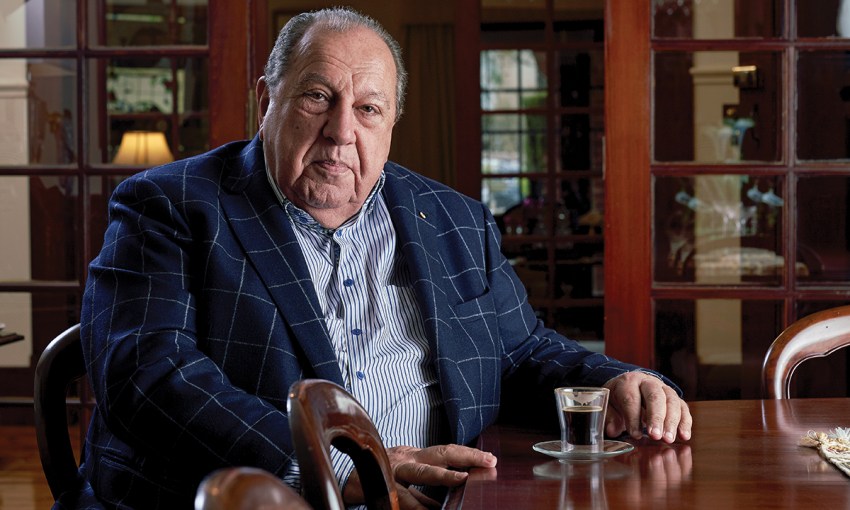From a horse and cart to a property king – developer Theo Maras is a self-made man who’s determined to give back to the state that shaped his success.
The heart of the deal
Theo Maras is sitting at his regular table at Eros Kafe in Rundle Street, near the door, overlooking the street.
The vantage point enables the 74-year-old businessman to keep an eye on things, greeting regular diners who stop to pay their respects to the man who owns most of the buildings on this CBD strip, including this one.
“Hello young Theo,” says a junior radio executive who is keen to impress.
“That’s better,” says Theo, tucking into his keftethes me salsa and haloumi saganaki. “Last time he was here he called me Mr Maras!”
Sitting here in the heart of the East End, mingling with friends and associates, it’s clear just how profoundly life has come full circle for this larger-than-life character.
It was here in the East End that a seven-year-old Theo sat on the back of a horse and cart, watching his parents, Ioanna and Stamati, sell their fruit and vegetables at the Adelaide Fruit and Produce Exchange.
“My parents would get up at 4am, pick and pack the fruit and veg and come to the East End,” Theo says.
“My job was to sit on the cart and make sure that nobody pinched any boxes.”
It’s a stark image considering that today, this high-profile property developer now owns the site of those former markets, which is bordered by four streets – Rundle, Grenfell and Union Streets and East Terrace.
Theo’s journey from cart to property tycoon began in 1952, when his parents left the Greek island of Ikaria to start a new life in Australia.
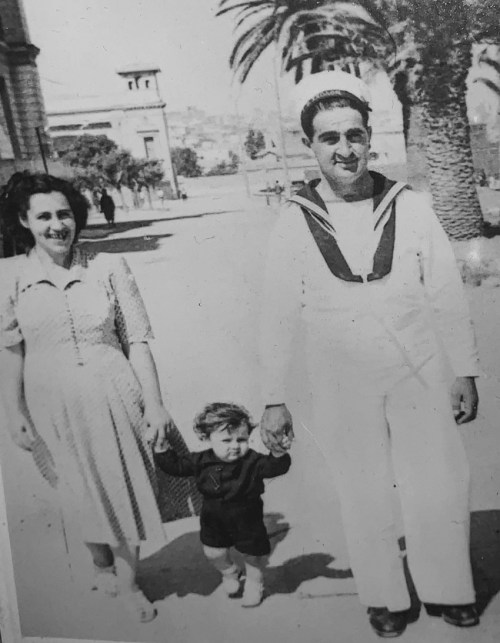
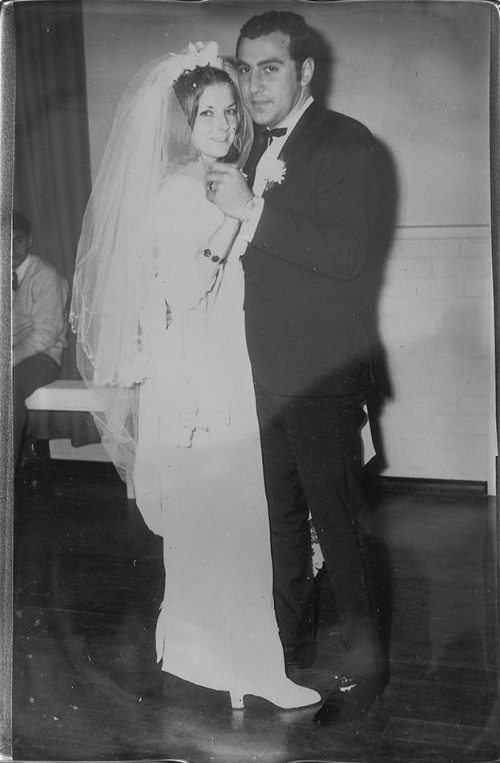
Theo’s grandparents, Menelaos and Lambrina Parianos, had already migrated to Adelaide in 1928 and the extended family of aunts, uncles and cousins all gradually followed. Theo was just four years old when the family arrived in Adelaide and it was a tough transition for a young Greek boy.
“I went to Walkerville Primary and I was the only ethnic kid there,” he says.
“I couldn’t speak the language so you sit in the class like a dumbo and you don’t understand anything.”
The Maras clan settled at 62 Warwick Street, Walkerville; five families living in a four-bedroom “hovel” as Theo refers to it.
But they were happy times fuelled by family and the promise of a better life in a new land.
Theo, whose sister Lily was born here in 1956, recalls the kindness of neighbours, the Hooper family, who befriended the new immigrants and began to teach Theo how to read and write.
“The Australian spirit was very much alive,” he says.
“Our other neighbours were the Hogarths. He was a judge, and they not only befriended us but they gave employment to my mother as a cleaner and housekeeper.”
The entire Maras family would begin the day at dawn, working in the market garden before heading off to their day jobs – including Theo’s father who worked at a foundry in Mile End.
Theo’s grandfather Menelaos, who survived years in a World War I prisoner of war camp, was a hero and mentor for young Theo, who absorbed his lessons about hard work and creating opportunities.
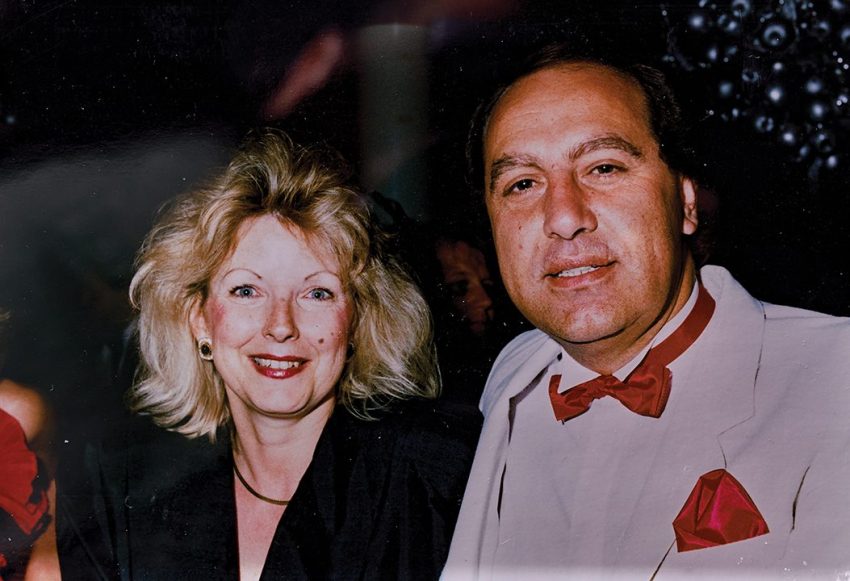
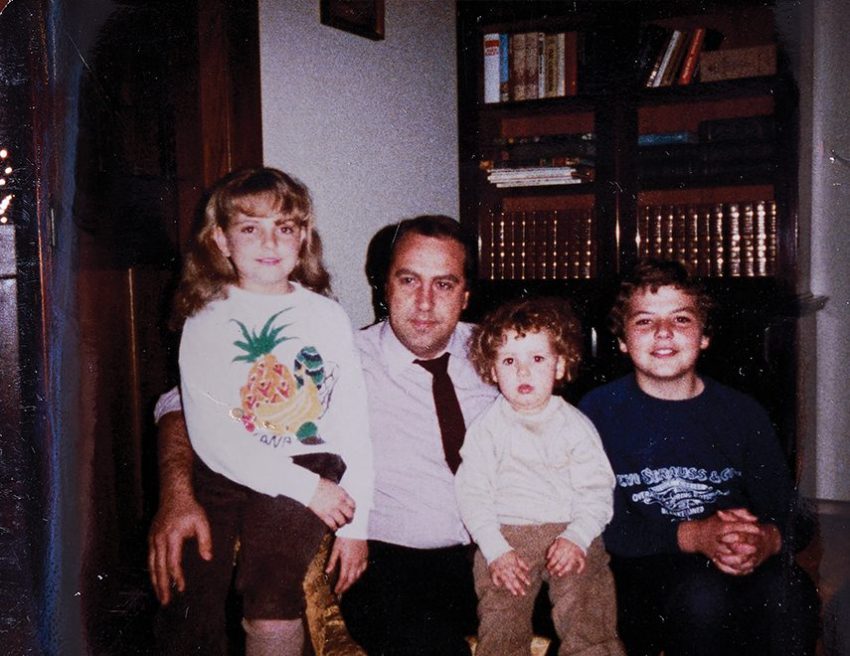
“My grandfather, who never went to a school and couldn’t read or write any language, would say the only way out of poverty is through education,” Theo says.
“He would encourage us and say that we could do anything we wanted. He’d point to the moon and say, ‘If you want you could fly to the moon’, and we’d laugh.
“We only understood two things – work and family. It was very simple. We had a block of land in Walkerville bought by my grandfather; a big block for the market garden right next to the river, and I’d work it, even as a little kid.”
With a natural talent for running and football, a sporting career looked imminent for Theo during his teenage years – he was a state champion runner in the 100 and 200 metres and a gifted footballer, playing for Gaza and Broadview Football Clubs. However, a chance to play at league level with North Adelaide was stymied when the young sportsman suffered recurring injuries and a bout of glandular fever. He gave it away at age 19.
Theo’s working life began with a part-time job as a brickie’s labourer at 14. Sporty and fit, he was perfectly built for the manual labour and revelled in the blokey rough and tumble of the building sites.
“I loved it because they were robust, hard-working battlers who accepted me as one of them, notwithstanding the fact I was still going to school. I’m talking about the labourers, not the bosses,” Theo says.
“The money I made went straight to Mum and Dad; everybody worked as one unit. Life was about work, integrity and one other thing: if you want to succeed at something, don’t wish it happens, make it happen.”
It was as an impressionable teenager on building sites that Theo first noticed the dapper architects, stepping out of their Jaguar cars, wearing turtle-neck skivvies, corduroy jackets and RM Williams pants and boots. Theo admired the way everybody would stand to attention as they inspected the site.
“I wanted to be just like that,” he says. “It was about the respect, not the money.”
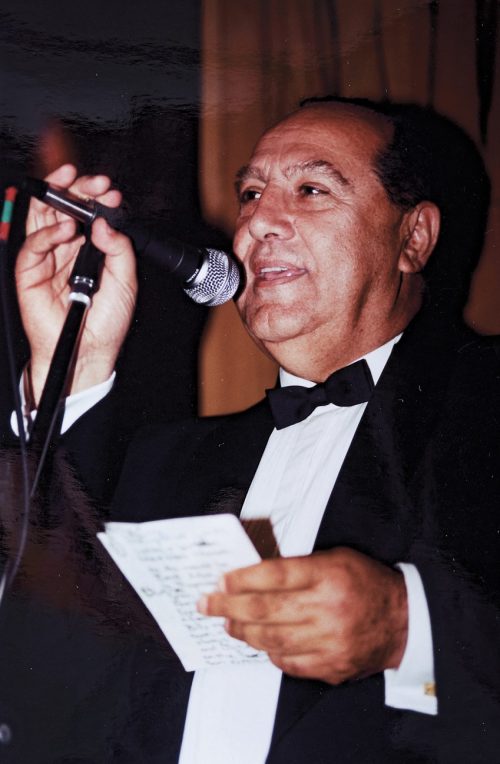
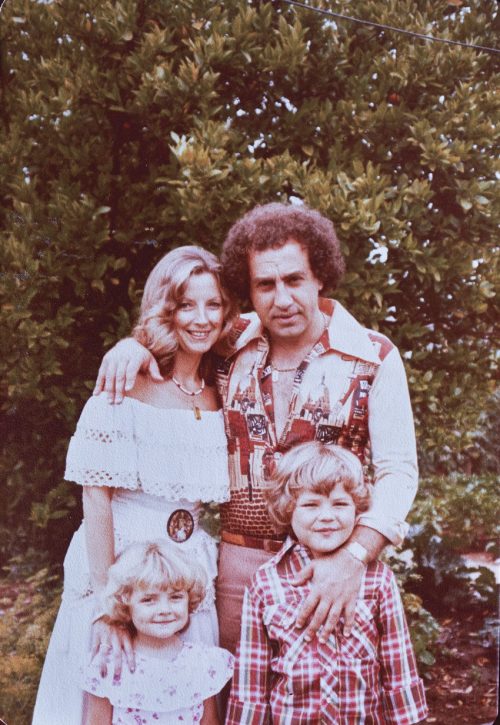
After completing school at Nailsworth and then later Gillies Plains High, Theo obtained a diploma in architectural design and building technology. His first full-time role was with Millers Lime and Timber in the quantities office before a stint at Wowich Industries at Elizabeth, drawing transportable housing. But it was while working at Chappell and Associates architectural firm in the late 1960s that Theo realised it wasn’t the architects who really held the power – it was the developers.
“That’s when I thought, I don’t want to be a bloody architect, that’s who I want to be. But how do I get from point A to point B?”, he says.
“I had a dream and I needed a strategy plan.”
So, on New Year’s Eve 1971, Theo sat down and mapped out the next stages of his career. He opened the first offices of T Maras and Associates in Ward Street North Adelaide in 1972. By then Theo had married Helen, whom he had met at a Greek wedding at the Estonian Hall in North Adelaide.
“I asked her to dance and her father said, ‘Go away’,” Theo says. “I was built like a brick shithouse and I was cocky, too.
“My father came over and put his arm around my shoulder and said, ‘I think you and I will say good evening and walk away’. That was it. My friends were laughing at me and I thought, I’m going back.
“I said, ‘Listen, I don’t want to cause any trouble’, so her father said, ‘Okay, have a dance and disappear’.”
But Theo didn’t disappear. He kept calling Helen, a bank administrator, until she finally agreed to go out with him. He remembers picking her up in his “Volkswagen beetle with fat wheels”.
“I got a sports car straight after I met her,” he laughs. “That’s when she wanted to go out with me.”
The couple married in 1969 and had three children; Steve, in 1971, Joanna in 1974 and Anthony in 1981. They bought their first home in Croydon, renovating it and selling it for a profit. The next house was in Netherby and again, they flipped it successfully. Then Theo purchased five units on the esplanade at West Beach for $35,000.
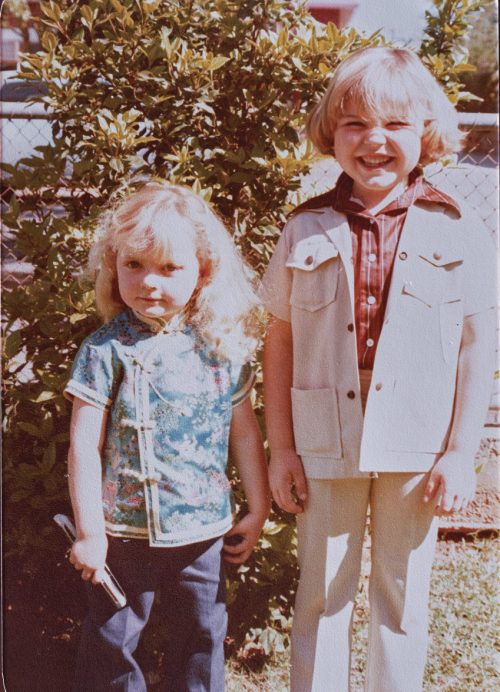
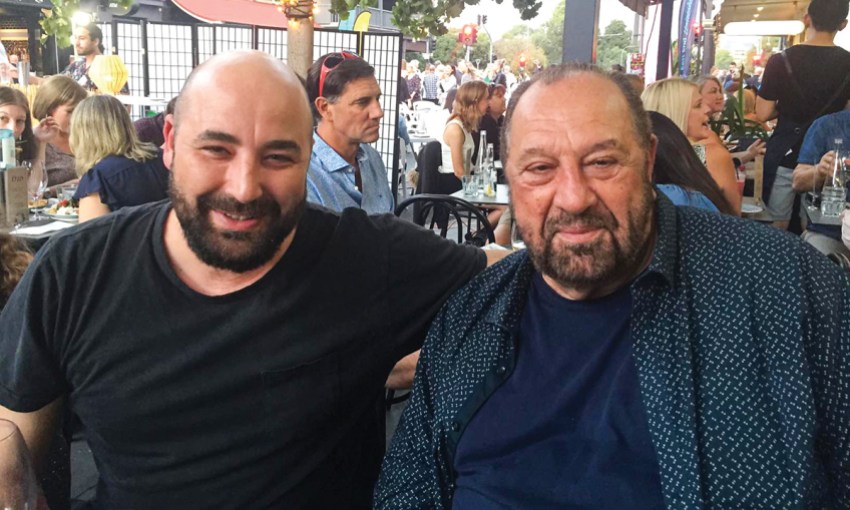
“We fixed them, strata titled them and sold them off individually and got $60,000,” Theo says.
“I worked out pretty quickly that if I buy this for X, I can fix it and sell it for Y and make a profit. If I can’t sell it, I’ll lease it and the rent will pay for the interest.
“It was hard; I worked hard, seven days but that’s all I’d known.”
Eventually, other investors began to trust Theo with their property portfolios and the business began to boom. His next big deal was a huge apartment block in St Mary’s. He sold the lot making a $420,000 profit. In today’s terms Theo estimates that to be about $10 million.
“A deal like that does two things,” he says. “It fills you up with self-assurance, and it makes you look for the next one, and the next one, and the next one; it becomes an obsession.”
In 1980, Theo went into partnership with prominent Adelaide lawyer Bill Manos, establishing their business Mancorp. Over the next 25 years the high-profile duo developed and invested in hundreds of commercial properties across Adelaide.
But it was in the East End where the company really made its mark. Theo had a vision for a “multi-function polis” – combining residential living with entertainment and retail hubs, which was unheard of at the time.
In 1992, after heavy negotiations with the state government, Mancorp won the right to redevelop the former Adelaide Fruit and Produce Exchange – the market where young Theo had sat on the horse and cart.
“We wanted residential, bars and clubs, entertainment and shops and retail. Every bloody village in the world is like this where it’s all together, without categorisation,” Theo says.
“I could see the change was needed, I could feel it, but I wasn’t sure that others were thinking like me. I have a different background, but I wanted it to be something that everyone can embrace.”
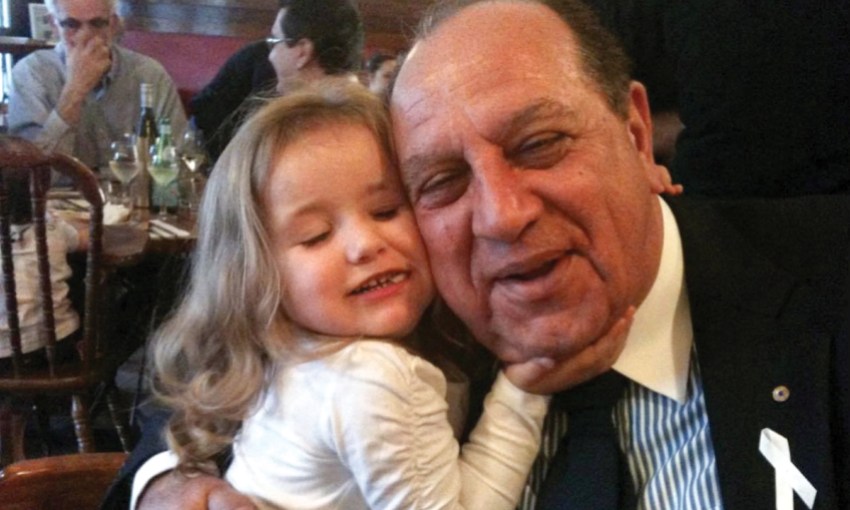
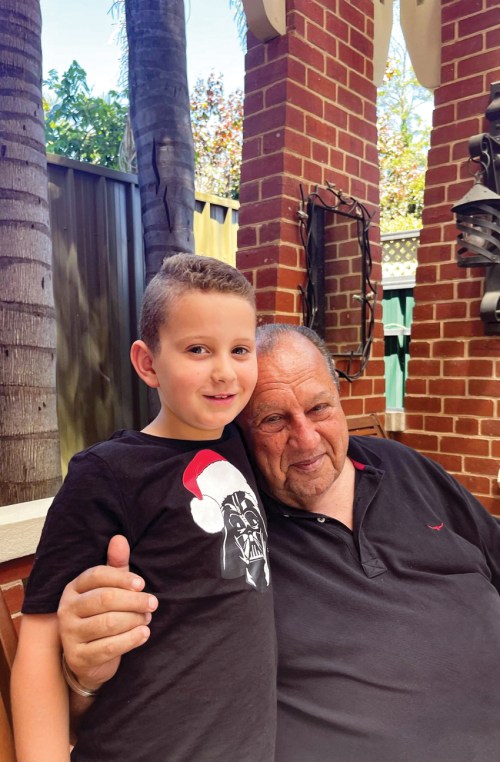
Inspired by the town squares, back streets and village lifestyle of European cities, Theo says he knew it was a lifestyle that would work here, too.
“I’m not an originator, I look and I observe. That’s what I did with the East End.”
The vibrancy of the precinct was also realised by attracting big events such as the Fringe Festival and the Grand Prix. Theo says the smaller laneways were developed to help create the “human space” for smaller crowds and more intimate gatherings.
“We have introduced to Adelaide what Adelaide never had. I define it as the people of Adelaide speaking out 30 years ago and saying we demand a lifestyle change,” he says.
Importantly, Theo says the company has always respected the heritage of the area and kept “every building that was standing up and some that were falling down”.
“We could have demolished the stables, where Nola bar is now, but we kept it.
“That’s part of my contribution, our business’s contribution, to this city that made a lot of money for me.
“Today, I walk down up and down Rundle Street and I’m not five foot five, I’m six foot six because I’m proud of what we’ve done. I haven’t demolished and pillaged.”
In 2006, Theo broke ties with Bill Manos and founded the Maras Group. Today, the family property business owns and manages more than 25 buildings in the Adelaide CBD, many in the East End. The group also owns a range of buildings in the inner suburban areas of Wayville, Fullarton, Keswick, Hilton, Brooklyn Park, Torrensville, Lockleys, Prospect and Walkerville.
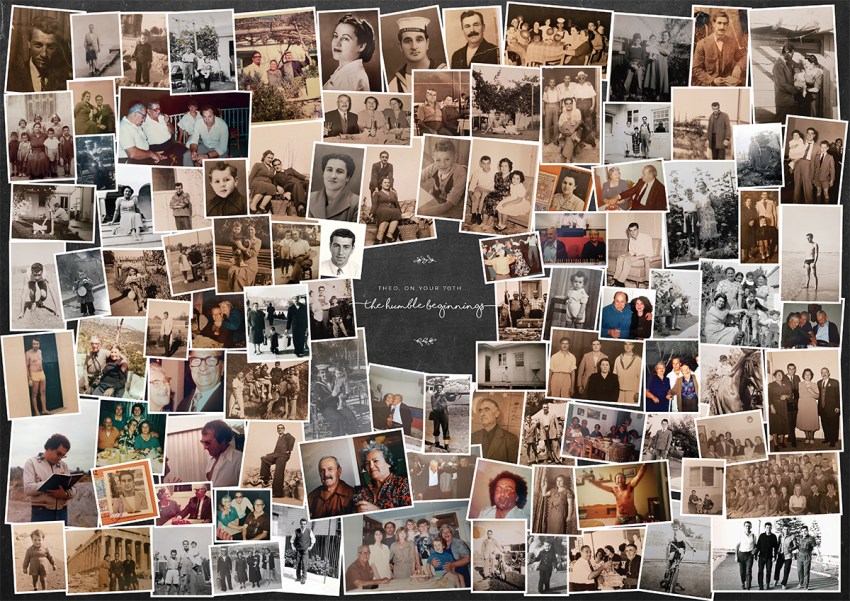
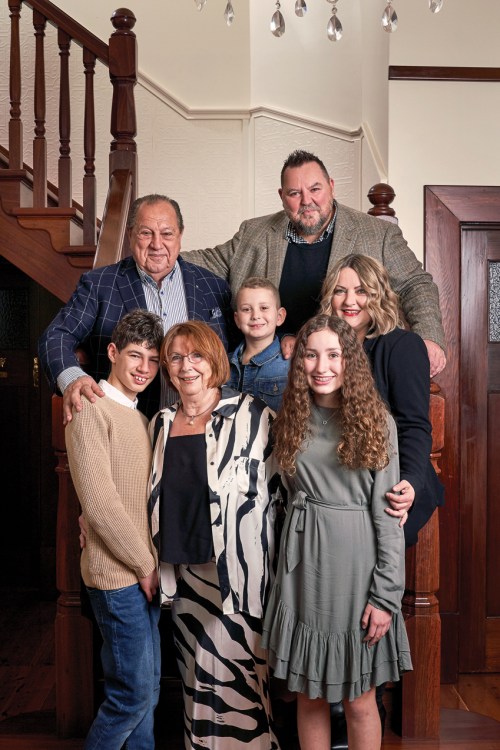
As chairman of the company, Theo is not hands-on with the day-to-day running of things anymore, passing the baton to son Steve, who was appointed CEO and managing director in 2007.
Semi-retirement means Theo has more time to spend with family, especially his adored grandchildren, Theo Junior, 14, who belongs to Steve and his wife Desi.
Joanna and her husband Angelo Stathopoulos have two children Eli, 13 and Athan, seven.
One of the biggest personal challenges for Theo was when Theo Junior was diagnosed with cerebral palsy at six months of age. Theo becomes emotional as he discusses how his grandson’s journey has given him greater insight in life and shaped him into a better man.
“Theo taught me that it doesn’t matter who you are or who how much you’ve got – I’d give every cracker we’ve got to make him well, but I can’t do it. So what the hell is money?” Theo says.
“You can’t buy health; you can’t buy love. Of course, I wanted to prove to myself in business, prove I could do it and have the trappings; it’s great. But what matters more than anything else in this world to me are my grandkids.
“The rest of the world can do cartwheels, but when my grandchildren want anything done, it gets done by Papou immediately. I spoil them unashamedly.”
In 2012, following Theo Junior’s diagnosis, Steve and his friend Phillip de Pinto set up Kids Without Limits, offering support to families who have been affected by disabilities. In 2014, Theo established the Maras Foundation which supports a variety of organisations and community groups across education, health, sport, the arts and more.
Theo also talks proudly of youngest son Anthony, who is a qualified lawyer but has established himself as a respected film-maker. Anthony co-wrote and directed the 2018 action thriller Hotel Mumbai and is often away working in the United States.
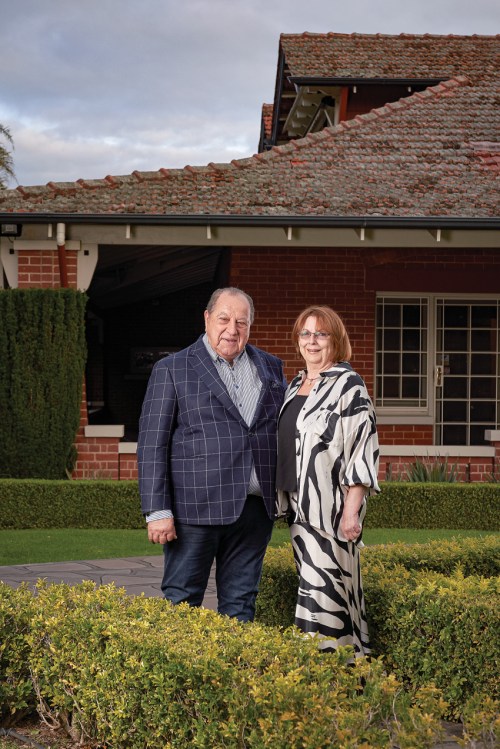
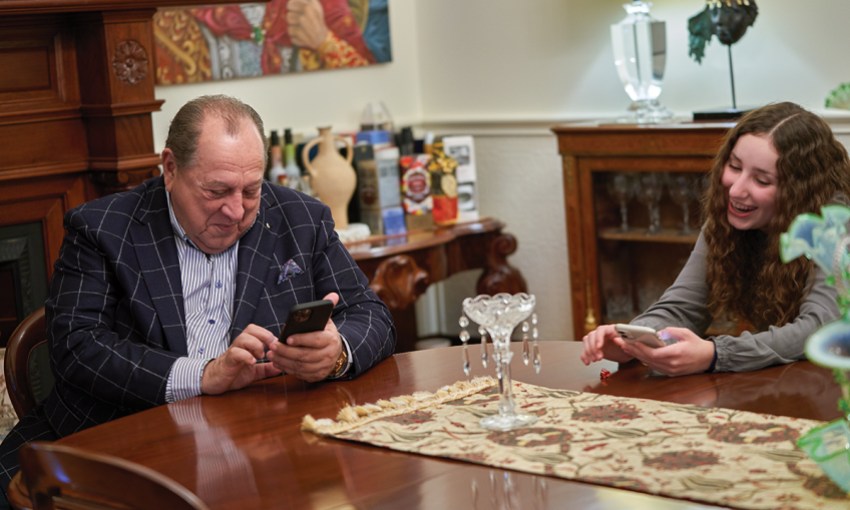
“After Hotel Mumbai all the big movie houses started reaching out, and he’s working on a couple of things at the moment,” Theo says. “He’s done it all by himself.”
Other than his children and grandchildren, another of Theo’s proudest achievements is Common Ground, which provides supported accommodation for Adelaide’s homeless.
Theo was instrumental in getting the Franklin Street premises built in 2006, providing finance and encouraging his big-end-of-town mates to do the same.
“Common Ground is the best model in the world and it’s not just about making rooms and giving people a key, it’s about looking after them, giving them guidance and helping and teaching them,” he says.
So, considering his influence and power within South Australia and his ethos of giving back to the community, was a career in politics ever on the table?
“No way, I won’t do it, I despise it,” Theo says emphatically.
“There’s too much bullshit, party lines and crap. One of the disappointments in my life is that things that are obviously for the betterment of our people and the state don’t happen because stupidity and politics get in the way.”
Politics aside, the high-profile businessman has contributed in other ways, including on numerous boards over the years such as the Rundle Mall Management Authority, the University of Adelaide’s Heritage Foundation, the SA Government Expert Panel on Planning Reform and as a past president of the Greek Orthodox Community of South Australia. Today, he is also relishing his role as chairman of the Adelaide Central Market Authority, overseeing the $400 million redevelopment of the iconic precinct.
Other awards include being made a Member of the Order of Australia in 2007 and a Fellow of the University of South Australia in 2015.
Theo says he is optimistic about South Australia’s future under a Labor government led by Premier Peter Malinauskas.
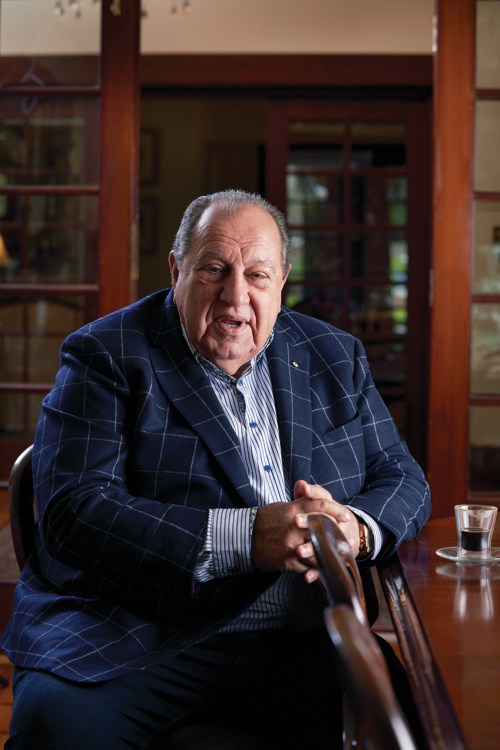
“Well, he’s not a politician, he’s a statesman and I like the statesman approach that he’s got for our state,” Theo says.
Despite being semi-retired, Theo still heads into the office most days, lunching at Eros with friends and Adelaide’s business elite, who regularly seek his advice and guidance.
“I don’t want to sit by the fireside and read a book,” he says.
“When I’m not working, I like seeing friends and having fun, meeting people and stirring them up and talking about the future for the next generation.
“I think there are too many selfish arseholes in this world who make something and want to keep it and not do anything for anybody else.
“I came here with nothing and I could do nothing, but my success is due to the people here who helped me. I am very proud of this state and I have a deep obligation to give back.”
Reflecting on his success, Theo says he can only attribute it to one thing – putting in.
“Whether that’s a marriage, business, partnership, the real secret is working at it,” he says. “If you sit back and wait for something to happen, nothing’s going to happen.
“My grandfather used to say, ‘I will curse any child, grandchild or great grandchild that ever puts his hand out to be unemployed in this country. You work; that’s it.’ He used to say all work is noble. I think that’s true.
“It all goes back to the days when we were digging in the dirt and putting horse manure on the soil and working to grow the fruit and vegetables. If we didn’t tend to it, we’d get nothing.
“You reap what you sow and then one day when the sun shines and it’s reaping time, you’ll get the rewards. It’s that simple.”
This article first appeared in the July 2022 issue of SALIFE magazine.



